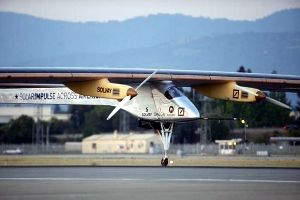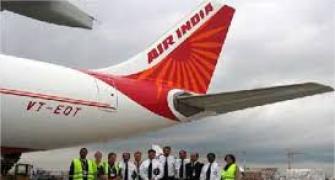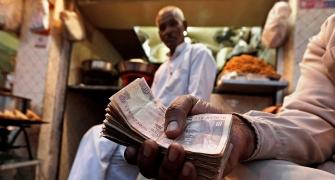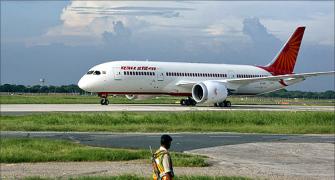 Ahmedabad and Varanasi are the two Indian cities among the dozen landing stops planned by two renowned Swiss aviators for their round-the-world trip on a solar-powered aircraft in March next year.
Ahmedabad and Varanasi are the two Indian cities among the dozen landing stops planned by two renowned Swiss aviators for their round-the-world trip on a solar-powered aircraft in March next year.
"If we get the permission from the Indian authorities, we will be landing in Ahmedabad and Varanasi during the first-ever round-the-world flight on a solar powered aircraft in March 2015," Bertrand Piccard and Andre Borschberg told a visiting team of Indian reporters at a military facility in Payerne.
Fifty-six-year-old Piccard, who completed the first non-stop flight around the world in an air balloon in 1999, said he and his team were hopeful of getting permission for landing in the two Indian cities.
"The discussions are ongoing with various authorities, including Director General Civil Aviation, Ministry of External Affairs and Civil Aviation Ministry and we are hopeful of getting the permission," he said.
He said they were also looking at the possibility of making a landing the aircraft -- which has been named Solar Impulse -- in China.
Piccard said the single-pilot aircraft will take off from Abu Dhabi around March 1 next year and reach India for its first stop before carrying onwards journey to Far East and across the Pacific Ocean into the United States.
It will cross the Atlantic Ocean to South of Europe before ending the flight at Abu Dhabi again somewhere in July next year.
"This will be the first aircraft with unlimited endurance as it can fly during day and night with an engine having efficiency as high as 97 per cent," 60-year-old Borschberg said about Solar Impulse, which has been manufactured by Solar Impulse seeking technical and other assistance from as many as 80 companies.
He said the Solar Impulse operates on solar energy during the day time while it operates at night on batteries, which are charged during the day using solar energy.
Borschberg, a graduate from Massachusetts Institute of Technology and a pilot by passion, said the wings of the aircraft, which have more than 1700 solar cells, have a span bigger than a Jumbo Jet but weighs lighter than a van.
"Two-thirds of the aircraft weight is made up of batteries."
He said while the normal aircraft need either refueling or maintenance after around 12 hours of flight, the solar-powered plane can be operated for 120 hours non-stop.
Image: A solar aircraft; Photograph: Reuters
The image is used for representational purpose only








